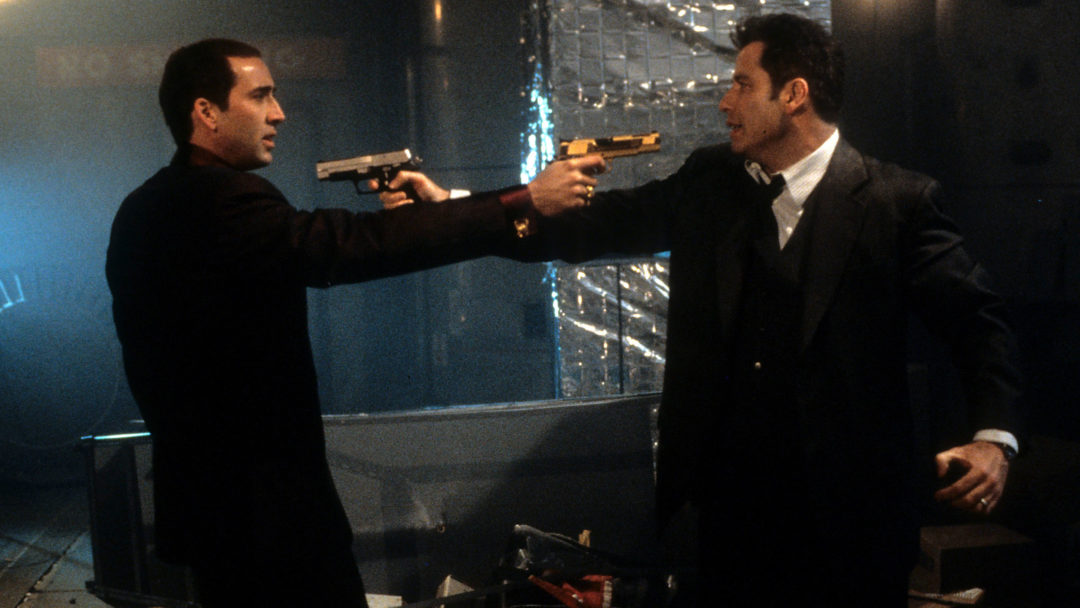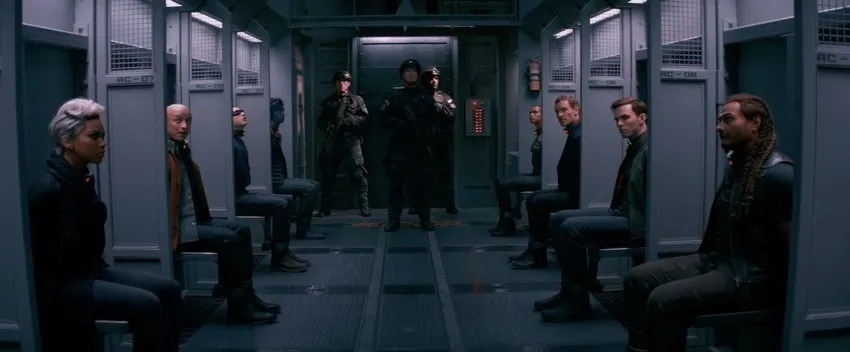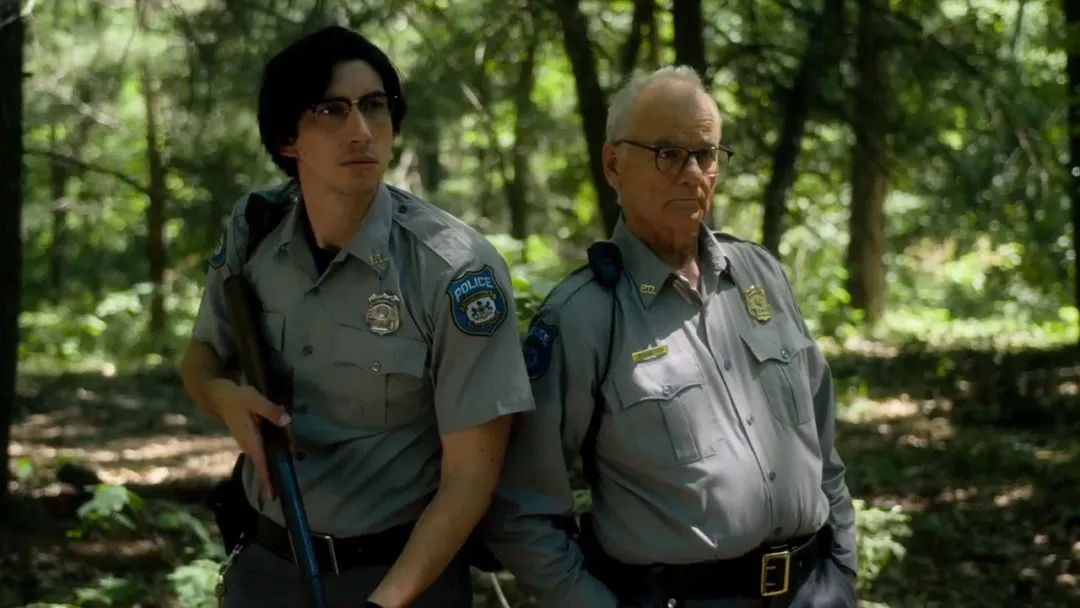You can have a great hero or a great villain, but it’s hard to have both at once. Heath Ledger’s Joker in 2008’s The Dark Knight oozed charismatic menace, but Christian Bale’s Batman is just another uptight hero who substitutes intense whispers for a personality. Jason Momoa has raffish charm and overwhelming pectorals as the title character of Aquaman, but Patrick Wilson’s Ocean Master is so thoroughly anonymous it’s almost impossible to even remember what he looks like the moment he steps offscreen. A great villain generally means you’ve got a mediocre hero; a great hero means you’ve got a mediocre villain. The screen isn’t big enough for two equally entertaining characters.
But then there’s Face/Off.
The 1997 John Woo film solves the hero/villain problem by the simple and gloriously ridiculous expedient of having the hero be the villain, and vice versa. FBI agent Sean Archer (initially played by John Travolta) undergoes an improbable procedure to have his face surgically switched with that of lunatic terrorist Castor Troy (initially played by Nicolas Cage.) Archer is supposed to go undercover as Troy in order to find out how to defuse a bomb, but Troy quickly turns the tables by appropriating Archer’s face and taking over his life. Thus, for most of the film, Travolta plays Troy impersonating Archer while Cage plays Archer impersonating Troy.
The setup is a little confusing, but in practice what it means is that both Travolta and Cage spend the entire movie performing as if every ounce of fluid in their bodies has been replaced with cocaine and their facial muscles are trying to scramble out of their skins. Travolta playing Cage playing a demented sex-crazed supervillain terrorist is a revelation. When he’s Troy pretending to be good guy Archer, he adopts an air of barely restrained predatory oleaginous cool as if he’s always on the verge of sliding out of his dark suit like a snake shedding its skin. When Castor is comfortable and lets the mask slip, it’s like Travolta becomes Cage, all bug eyes and manic extroversion. “You’re not having any fun!” Travolta screams with rabid glee, and you completely believe that he is having the time of his life.

It’s less startling to see Cage with the overacting turned up to 11, but his performance is equally marvelous. Archer in Troy’s body is a man without family, without friends, without even his own face. He’s a losing loser who has lost, which could be really tedious to watch. But Cage plays his despair so loudly it rattles your teeth. His agonised, longing looks are always on the verge of sliding into lugubrious weeping and/or unhinged laughter. Archer, pushed into Troy’s underworld, is just a hair’s breadth away from being as desperately violent, vengeful, and out of control as his enemy. In one marvelous scene, Archer is hanging with Troy’s nefarious friends, takes multiple controlled substances, and then starts to babble, softly but terrifyingly, about how he wants to cut off Archer’s face. Cage manages to retain Archer’s innocent, hound dog look as he wistfully fantasizes about atrocities — a tour de force of villainous overacting by the guy ostensibly playing the hero.
Action films are often reluctant to make the hero and villain equally entertaining because they’re trying to distinguish between them. Robert Downey Jr. as Iron Man has to make those quick, quirky ad libs at the expense of someone; he wouldn’t look as brilliantly idiosyncratic if the villain came back with equally cutting zingers. Agent Smith is magnetically, extrovertedly malevolent, so Neo has to be flat and expressionless in the usual Keanu Reeves manner. Good guys and bad guys are supposed to be different, and the quickest way to make them different is to make one of them very watchable, and the other less so.
Some movies get around this by just making the villain a horrifying monster, as in Aliens. Others figure out cleverer contrasts, as in the working class American cop vs. sophisticated Eurotrash dynamic of Die Hard. In Face/Off, though, John Woo wants you to know that the good guy and the bad guy are not different. That’s made clear in one notably flamboyant scene where Archer and Troy are in a standoff on opposite sides of a double mirror, so when they point guns at each other they see each other’s faces, each confronting an enemy who is himself. Deep!
The “good and evil are really the same when you think about it” point is banal, admittedly. But Archer and Troy aren’t actually the same because they’re both dangerous men with guns, or some such silliness. Rather, they’re both the same because they’re both actors. Troy plays Archer just as Archer plays Troy — just as Travolta plays Cage and Cage plays Travolta. It’s not their inner essence which unites them, but their outer pretense.
Archer and Troy are both compounded from greasepaint: neither hero nor villain are real. They’re both a mask, put on for your amusement and titillation. The title “Face/Off” refers to the plot twist whereby Archer and Troy switch faces. But it also refers to the movie itself, in which Travolta and Cage remove their everyday identities and sew on larger than life personas.
Action movies often try to create a kind of base reality — a normal against which the heightened explosions and car chases and fight sequences can be judged. Batman is the boring hero who’s sobriety serves as a foil for the Joker’s apocalyptic evil; Ocean Master just stands there so Aquaman can be more charismatic in comparison. But Face/Off dispenses with that, instead acknowledging that the reality of a movie is its theatricality. Archer and Troy don’t exist, but Travolta and Cage do, and by god, they are going to eat every bit of scenery on the planet, up to and including stage sets floating in low earth orbit.
Face/Off is ostensibly about the hatred between Troy and Archer; it’s a story of a titanic clash in which they focus with such intense ill will that they transform into one another. But really, the movie isn’t about an internal dynamic, but about an external one. It’s a dramatic exercise, a tour de force of acting and fan service. Why have a bunch of scenes in which a boring person does boring things when every single instant of a film can be just completely raving bonkers? Why have one actor giggling and drooling and ranting when you could have two of them RANTING and GIGGLING and DROOLING? Wouldn’t that mean you were having more fun? Yes, it would. And also, yes, it would.





Published: Mar 19, 2019 02:00 pm